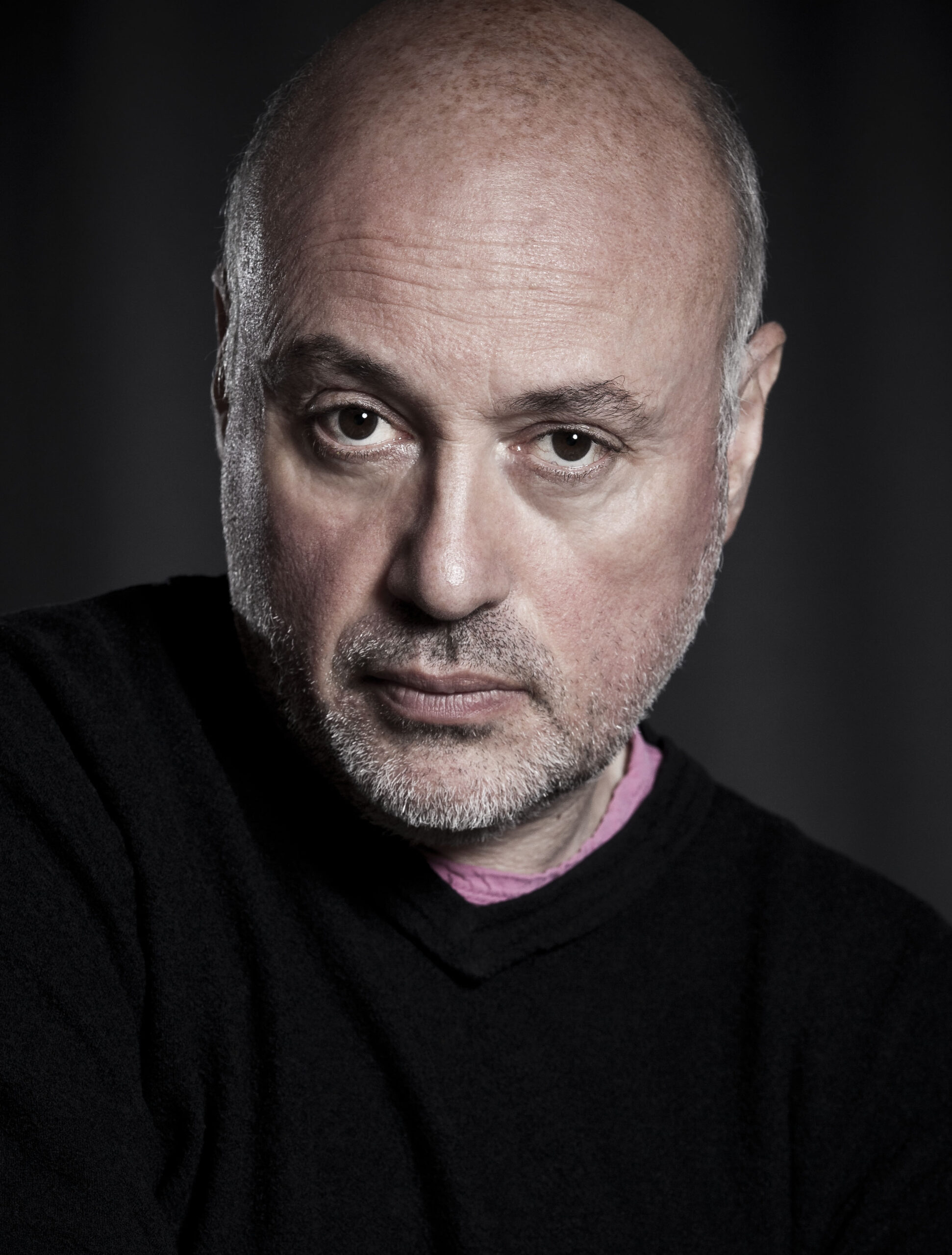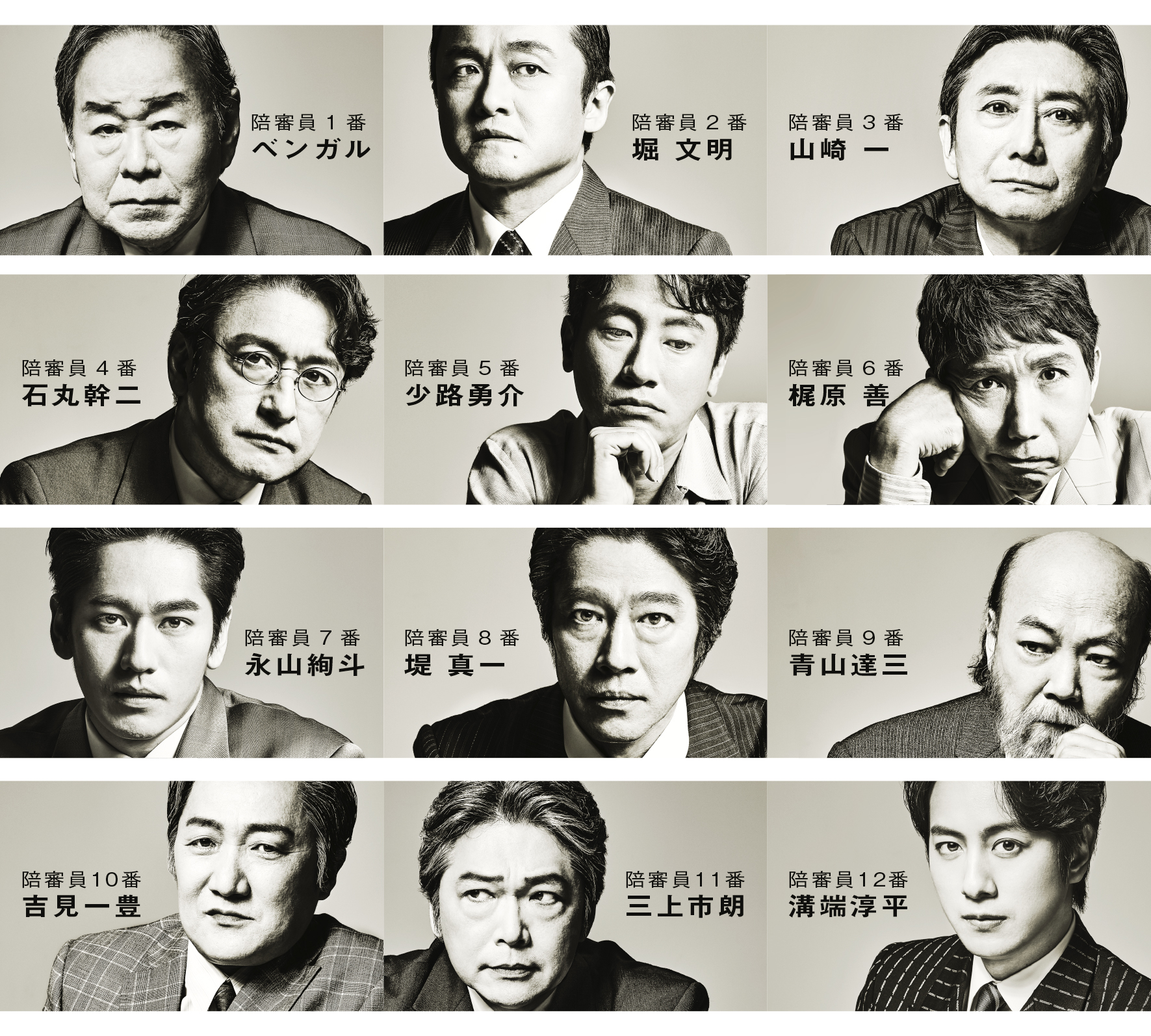
English dramatist Lindsay Posner has only worked through an interpreter once before, when he staged an acclaimed musical version of “Cinderella” in Moscow in 2016 with a Russian cast.
Now, though, the Olivier Award-winner is taking that experience to another level by remotely directing a Tokyo production of the iconic courtroom drama “Twelve Angry Men” from his London home with an all-Japanese cast.
Running Sept. 11–Oct. 4, this uniquely long-distance production also marks the long-awaited reopening of Bunkamura’s Theatre Cocoon following its closure on Feb. 28 due to COVID-19.
Back in January, when Posner visited Tokyo for preparatory meetings, he was expecting to return in a few months to a city abuzz with Olympics excitement. Instead, the pandemic has put both the Games and international travel on hold — meaning the 61-year-old with more than 50 major productions to his name has had to log into Zoom in the early hours to conduct rehearsals with a cast eight hours ahead on the clock and more than 9,500 kms away.
But even the radical change to his daily routine hardly seems to have phased this director, who “welcomes” being able to work with non English-speaking actors again after that successful experience in Moscow.
In fact, as he cheerfully noted during our video chat last week that “it’s interesting how you get used to things very quickly,” it was clear that his enthusiasm also stems from a self-declared, long-standing ambition to stage this work by the socially incisive U.S. film and television writer Reginald Rose.
First broadcast as a 60-minute TV drama in 1954, Rose rewrote “Twelve Angry Men” for the stage the following year. However, it was 1957’s Hollywood movie, titled “12 Angry Men” — which he wrote and also co-produced with its star, Henry Fonda — that propelled this tale told almost entirely from within a murder trial’s jury room to worldwide fame in a single bound.
The drama revolves around those 12 men from a wide range of backgrounds who retire to arrive at what the judge states must be a unanimous verdict. At issue is the fate of a 16-year-old boy from the slums who faces a mandatory death sentence if they find him guilty of stabbing his father to death.
At first it seems the boy’s fate will be sealed quickly as all the jurors, known only by the numbers 1 to 12, agree on his guilt — all except Juror #8 (played this time by Shinichi Tsutsumi), who casts doubt on the prosecutor’s case so effectively that the others start reversing their verdicts one-by-one and adding to pressure on those holding out for a conviction.
However, it’s not just logic in the mix — but each juror’s own prejudices, assumptions and lived experience — with some jurors virtually having breakdowns as they confront their own morals and values.
Although this play dates from more than 60 years ago, Posner explains why he has been thinking of staging it for a long time.
“I think that politically it implicitly talks about the positive virtues of real justice, democracy, freedom of speech and the freedom to express opinions without prejudice, which is timely today — especially when you look at America, and to an extent Britain and Europe.
“And what’s universally relevant is the idea that it’s impossible to know the whole truth of an event because you don’t ever know a person’s whole motivation, and there can be multiple interpretations of what you think you know.
“So what’s really clever is how this play reveals more about the jurors and their own prejudices than about the trial — meaning they go home having learnt something about themselves. Hopefully, too, our audiences may reflect on how their own prejudices affect their perceptions.”
In practice, the director says they only talked generally about U.S. society and such themes during the rehearsals.
“As the actors are effectively living inside the play, what’s been more valuable is that they spent a whole week going through it line by line examining the psychological motives and character of each juror.”
Then, explaining why he’s chosen to position an island-style stage in the middle of Theatre Cocoon’s 747-seat auditorium and performance space, Posner says his aim is to immerse both the actors and audiences in the drama as much as possible.
“It’s about 12 men trapped in a very claustrophobic atmosphere. So I thought if we could wrap the audiences around them it would add to that pressure and also create a more intense atmosphere among the audiences as they feel more intimately involved.
“We’ve also kept to the period, with 1950s costumes, because the play is very time-specific though the theme remains very modern. And we’re not using much music because it’s the language that is so important and we can let the debate and dialogue be its most powerful element,” he explains.
Additionally, “thanks to Theatre Cocoon’s clever use of cameras and digital techniques,” Posner says, “I can access so many views into the rehearsal room very clearly that it’s not been so different from directing a film — though there are obviously difficulties.”
Among those, he says, “We are still a bit compromised by me not being physically with the actors. There is not the same sharing of sensual creative energy as usual. Also, it necessitates a slightly different way of giving notes, because I can’t hand them personally to the actors and the whole company tends to hear.”
Then, commenting on the current situation in Britain, Posner points out that many people remain anxious about going out. Adding to that, the finances of large commercial West End venues preclude them from presenting works to socially distanced audiences, though he’s hopeful of a turnaround in the new year.
However, based on his own experience with “Twelve Angry Men,” he’s convinced colleagues at home can “create good theater” even in this Covid-19 situation — as he aims to demonstrate. He also hopes to send a message to theater people everywhere, urging them not to stop staging live works no matter how difficult that may be.
Then, commenting on the pandemic-driven shift to home-based working, he firmly declared that would not happen in theater.
“Once we get the virus under control and have a vaccine, I don’t think the form of making theater will change because there is nothing, neither remote or anything else, to replace live rehearsals and stagings.
“In the meantime, with a bit of invention and resolve we can still create very good productions, and it’s vital for theater culture that we don’t stop doing it.”
**** “Twelve Angry Men” runs Sept. 11–Oct. 4 at Bunkamura Theatre Cocoon in Shibuya, Tokyo. For details, call 03-3477-9999 or visit www.bunkamura.co.jp.

